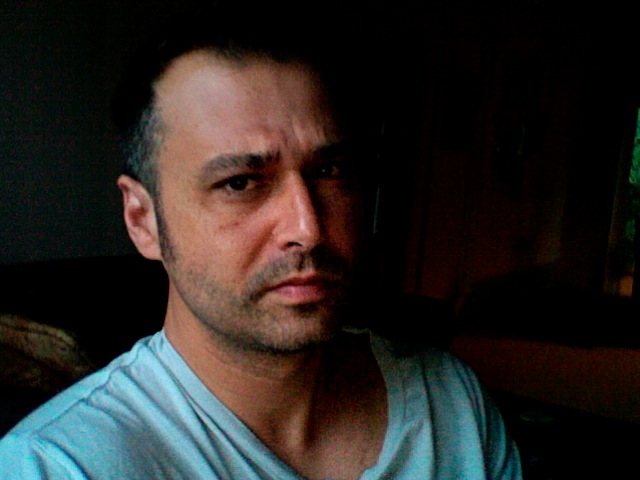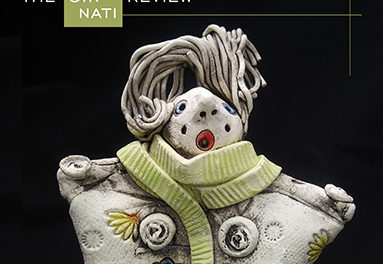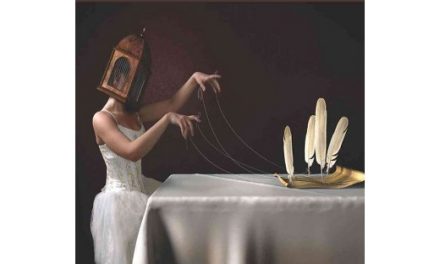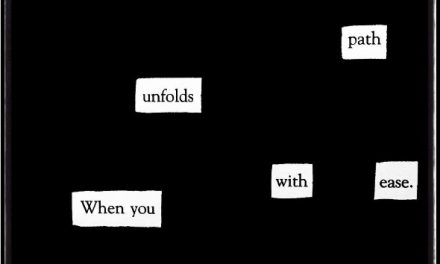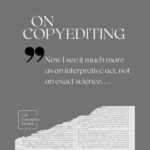Now for our third and tasty installment of “Irrelevant Questions for Relevant Writers,” in which Don Peteroy, Cincinnati Review staff member-extraordinaire, conducts one-question interviews with writers in an attempt to discover what makes them tick—or, rather, what they think about ticks:
Alex M. Pruteanu is the author of the recently-released novella Short Lean Cuts (CreateSpace, 2011). His work has  also appeared in Peer-Amid, The Legendary, Girls With Insurance, Trick With a Knife, Amphibi.us, Slingshot Litareview, and Pank Magazine. Pruteanu subsists and generally uses too many of this planet’s resources in the Raleigh-Durham-Chapel Hill area in North Carolina.
also appeared in Peer-Amid, The Legendary, Girls With Insurance, Trick With a Knife, Amphibi.us, Slingshot Litareview, and Pank Magazine. Pruteanu subsists and generally uses too many of this planet’s resources in the Raleigh-Durham-Chapel Hill area in North Carolina.
Question: Let’s say that you’re in the bathroom, brushing your teeth. Suddenly, you see the bathtub go down the drain. Then the toilet goes down the bathtub’s drain. Then the sink goes down the bathtub’s drain. You can more or less figure out what might happen next. How would you stop this madness?
AP: Yes. Indeed. It’s obvious that the simple act of brushing one’s teeth has somehow defied the laws of quantum mechanics, brushing aside the brilliant work of Dr. Stephen Hawking and ruthlessly opening up a black hole in the universe. Personally, I have known this for quite some time now and, therefore, have stopped brushing my teeth. I look at every session missed as saving a baby universe out there somewhere. And that makes me feel good. Also, in the decade and a half that my mouth has not seen a toothbrush, I can proudly announce that, although I’ve lost a few teeth along the way, I am now able to whistle much better.
Dinty W. Moore, is author of The Mindful Writer: Noble Truths of the Writing Life, forthcoming from Wisdom Publications in May 2012, as well as the memoir Between Panic & Desire, winner of the Grub Street Nonfiction Book Prize in 2009. His other books include The Accidental Buddhist, Toothpick Men, The Emperor’s Virtual Clothes, and  the writing guide, The Truth of the Matter: Art and Craft in Creative Nonfiction. He worked briefly as a police reporter, a documentary filmmaker, a modern dancer, a zookeeper, and a Greenwich Village waiter before deciding he was lousy at all of those jobs and really wanted to write memoir and short stories. Moore has published essays and stories in The Southern Review, The Georgia Review, Harpers, The New York Times Sunday Magazine, The Philadelphia Inquirer Magazine, Gettysburg Review, Utne Reader, and Crazyhorse, among numerous other venues. He is a professor of nonfiction writing at Ohio University and can be had cheaply.
the writing guide, The Truth of the Matter: Art and Craft in Creative Nonfiction. He worked briefly as a police reporter, a documentary filmmaker, a modern dancer, a zookeeper, and a Greenwich Village waiter before deciding he was lousy at all of those jobs and really wanted to write memoir and short stories. Moore has published essays and stories in The Southern Review, The Georgia Review, Harpers, The New York Times Sunday Magazine, The Philadelphia Inquirer Magazine, Gettysburg Review, Utne Reader, and Crazyhorse, among numerous other venues. He is a professor of nonfiction writing at Ohio University and can be had cheaply.
Question: Let’s imagine that price tags appear all over your body. If you try to rip them off, it hurts. You go about your day in isolation. You notice that whenever you do something productive with your hands, the prices on the tags that are attached to your fingers increases. Whenever you come up with a good idea, the price of your forehead skyrockets. Likewise, the opposite occurs: bad ideas and lethargy decrease your apparent value. How would you reconceptualize your life, or would you just go to a doctor and have the darned tags surgically removed?
DM: This is fantasy, right? I mean, it sounds like some of my worst days as of late, and maybe you’re seeing something I can’t see? Are the tags yellow or blue? Are you gifted with special sight? I’m really freaking out right now. But to the question at hand: I would reconceptualize my life. Just learning to spell “reconceptualize” would probably take my forehead over the $100 mark, which would make me beam with pride. All that goofy smiling would surely raise the price on my cheekbones and along the corners of my eyes. So I would smile some more. An infinite capitalist feedback loop would be created. More forehead action. More smiling. Watch those prices climb. I would eventually sit down from the effort. My sacroiliac price would skyrocket, no doubt. (I’m no cheap piece of you-know-what, you know.) But how long could I keep this up? And are there any buyers? Is the demand real or just a Dinty bubble? In my wildest dreams, foreign investors would purchase me piece by piece, until I no longer existed as a distinct entity. Then, totally disassembled, I wouldn’t have to answer bizarre e-mails from random graduate students in Cincinnati. Never. That would be bliss. Did I spell Cincinnati correctly? Did my forehead price just jump through the roof?
From this point on, the interviewer will refer to himself as “Random Graduate Student” or “RGS.”
 Maya Pindyck is the author of the poetry collection Friend Among Stones (New Rivers Press, 2009) and the chapbook Locket, Master, winner of a Poetry Society of America Chapbook Fellowship. Her work has appeared in journals including Poets & Artists, Sycamore Review, Bellingham Review, Mississippi Review, and Tusculum Review. Besides teaching at the Frederick Douglass Academy VII in Brooklyn, she is also a visual artist and a co-founder of Project Voice, a growing compilation of women’s abortion stories.
Maya Pindyck is the author of the poetry collection Friend Among Stones (New Rivers Press, 2009) and the chapbook Locket, Master, winner of a Poetry Society of America Chapbook Fellowship. Her work has appeared in journals including Poets & Artists, Sycamore Review, Bellingham Review, Mississippi Review, and Tusculum Review. Besides teaching at the Frederick Douglass Academy VII in Brooklyn, she is also a visual artist and a co-founder of Project Voice, a growing compilation of women’s abortion stories.
RGS: Let’s say that you get hired to teach at a brand new writer’s conference in the Bahamas. When you show up for the first class, you notice that all of the students are wearing bear costumes. Furthermore, they communicate only through growling and moaning. You quickly discover that this is a conference for writers who have a fetish for bear costumes. To make matters worse, you look at the revised conference schedule—which you’d received minutes prior to the class—and realize that you’re teaching, “The Craft of Bear-Enthusiast Sonnets.” How would you handle this?
MP: I would grin and bear it.

